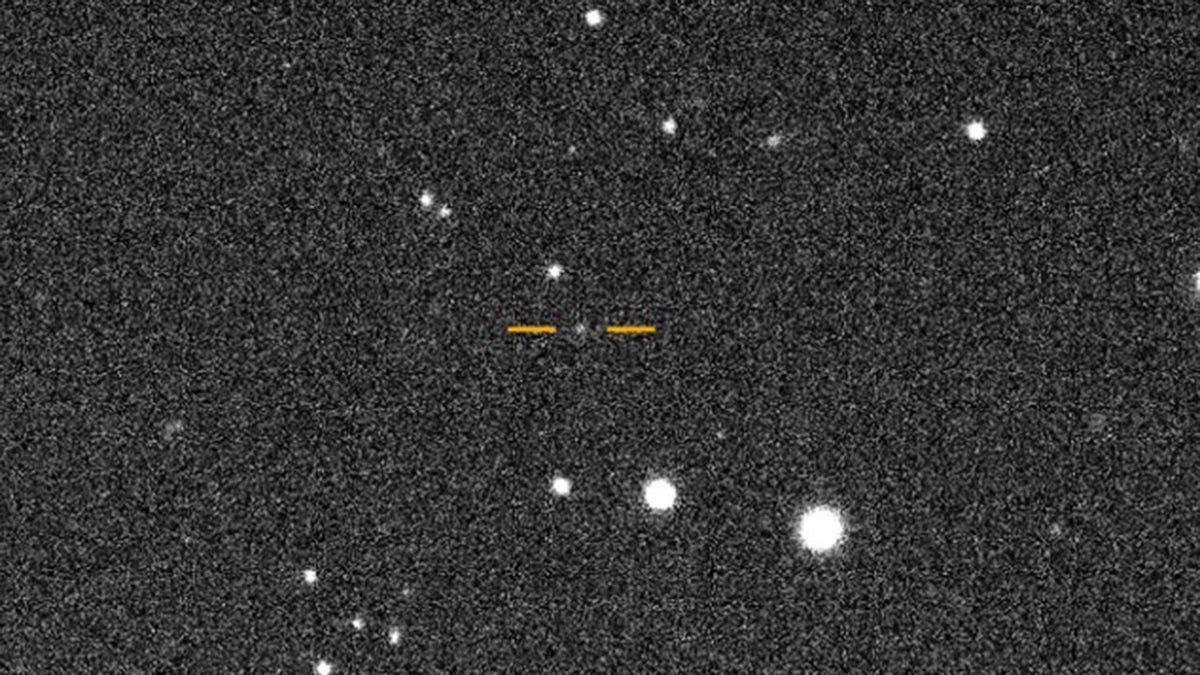NEWYou can now listen to Fox News articles!
Astronomers have reportedly discovered a skyscraper-sized asteroid moving through our solar system at a near record-breaking pace.
The asteroid, named 2025 SC79, circles the sun once every 128 days, making it the second-fastest known asteroid orbiting in the solar system.
It was first observed by Carnegie Science astronomer Scott S. Sheppard Sept. 27, according to a statement from Carnegie Science.
UFO MANIA GRIPS SMALL TOWN AFTER MYSTERIOUS GLOWING OBJECT SIGHTING GOES VIRAL

A skyscraper-size asteroid, named 2025 SC79, was discovered in September, hidden in the sun’s glare. (Carnegie Science)
The asteroid is the second known object with an orbit inside Venus, the statement said. It crosses Mercury’s orbit during its 128-day trip around the sun.
“Many of the solar system’s asteroids inhabit one of two belts of space rocks, but perturbations can send objects careening into closer orbits where they can be more challenging to spot,” Sheppard said. “Understanding how they arrived at these locations can help us protect our planet and also help us learn more about solar system history.”
The celestial body is now traveling behind the sun and will be invisible to telescopes for several months.
HARVARD PHYSICIST SAYS MYSTERIOUS INTERSTELLAR OBJECT COULD BE NUCLEAR-POWERED SPACESHIP
Sheppard’s search for so-called “twilight” asteroids helps identify objects that could pose a risk of crashing into Earth, the statement said.
The work, which is partially funded by NASA, uses the Dark Energy Camera on the National Science Foundation’s Blanco 4-meter telescope to look for “planet killer” asteroids in the glare of the sun that could pose a danger to Earth.
The NSF’s Gemini telescope and Carnegie Science’s Magellan telescopes were used to confirm the sighting of 2025 SC79, Carnegie Science said.
The fastest known asteroid was also discovered by Sheppard, who studies solar system objects including moons, dwarf planets and asteroids. and his colleagues in 2021.
CLICK HERE TO GET THE FOX NEWS APP
That one takes 133 days to orbit the sun.






